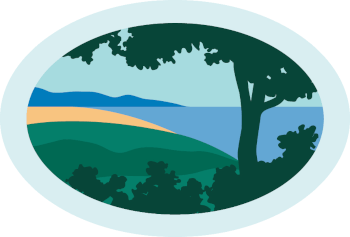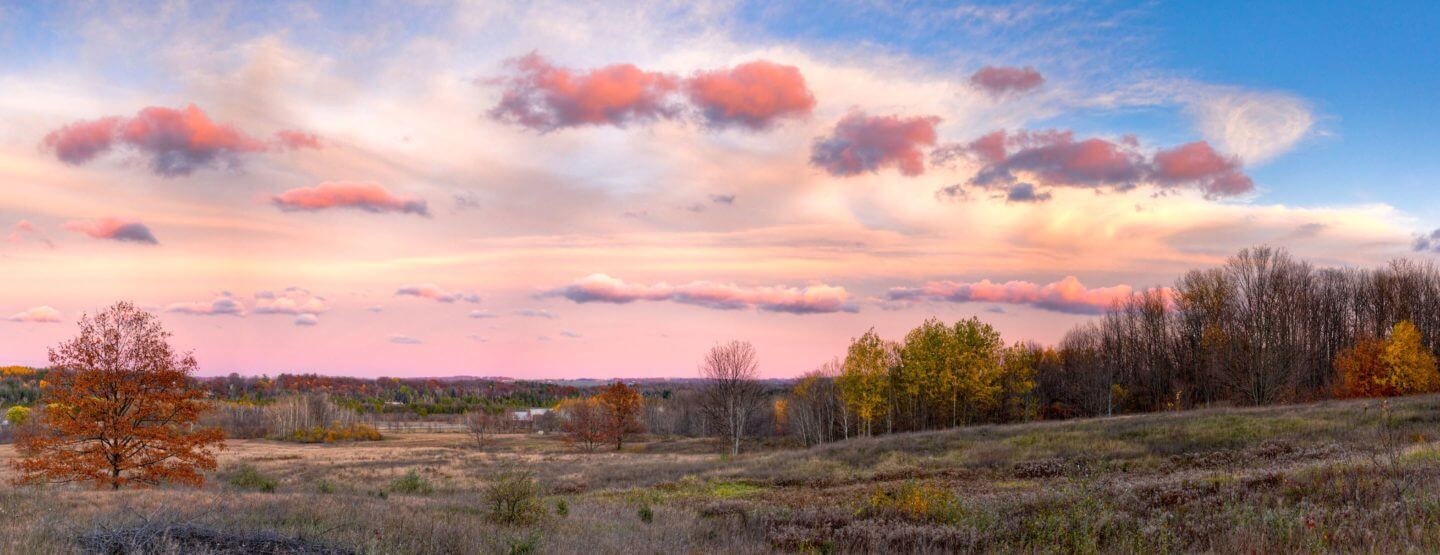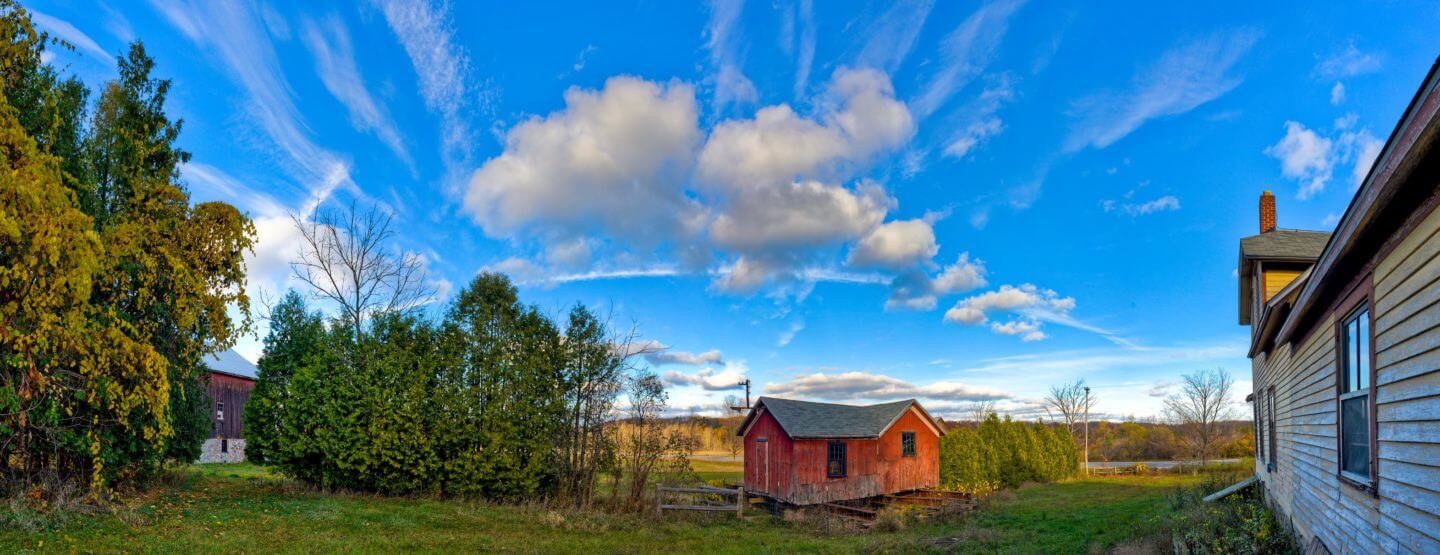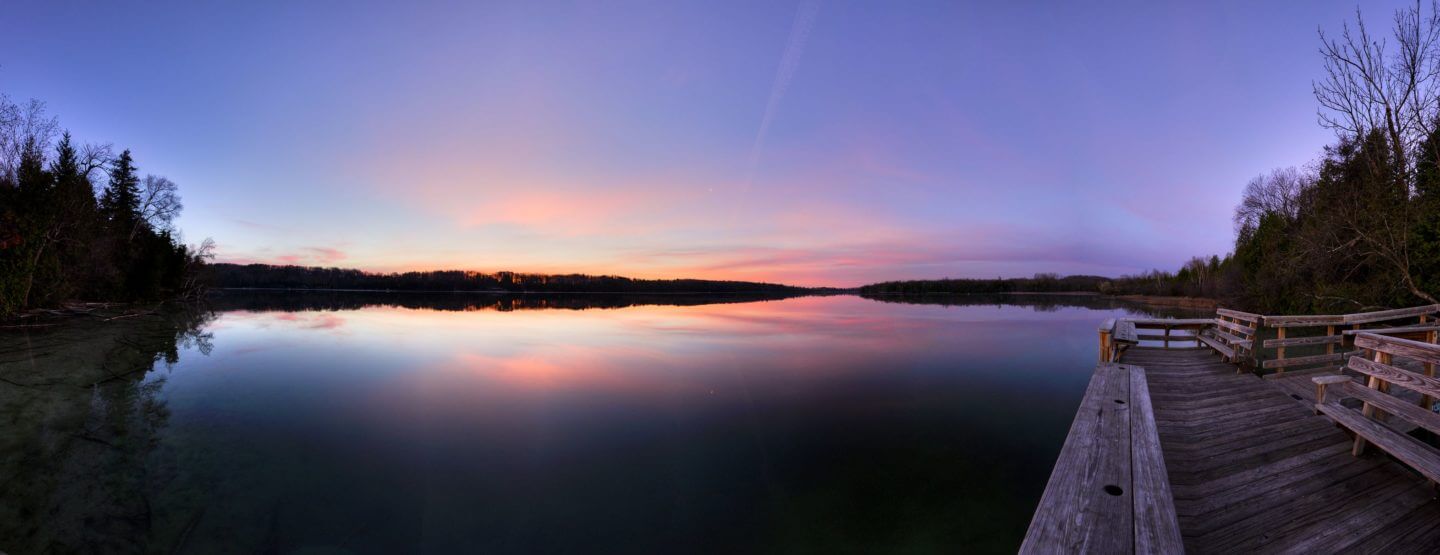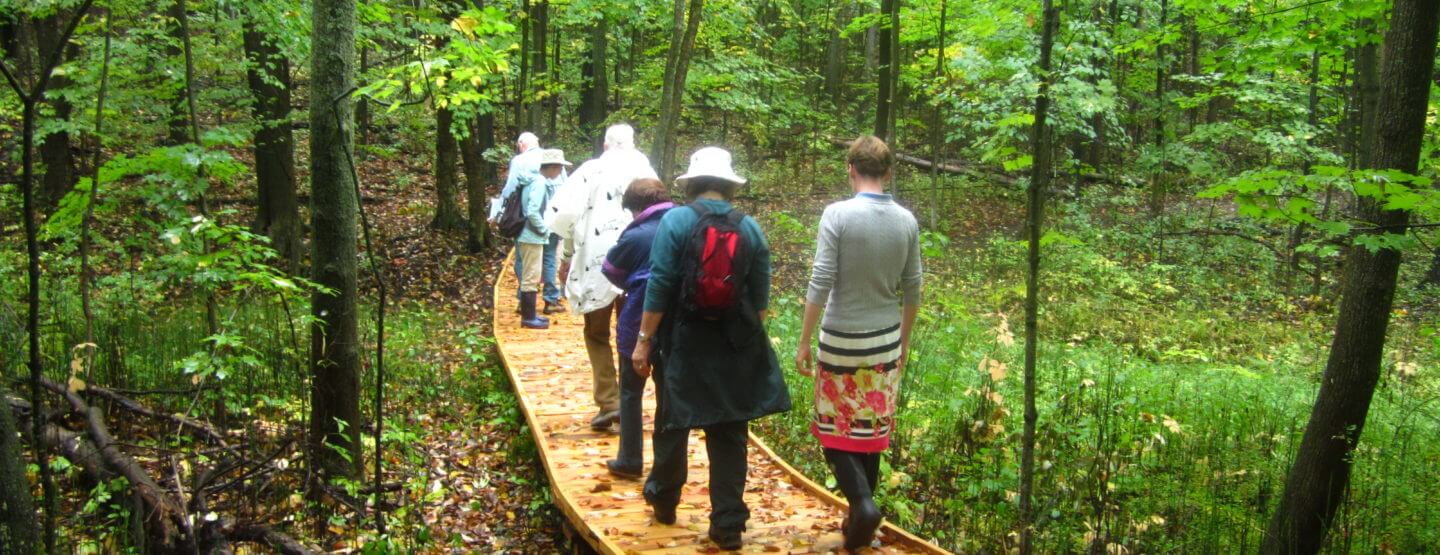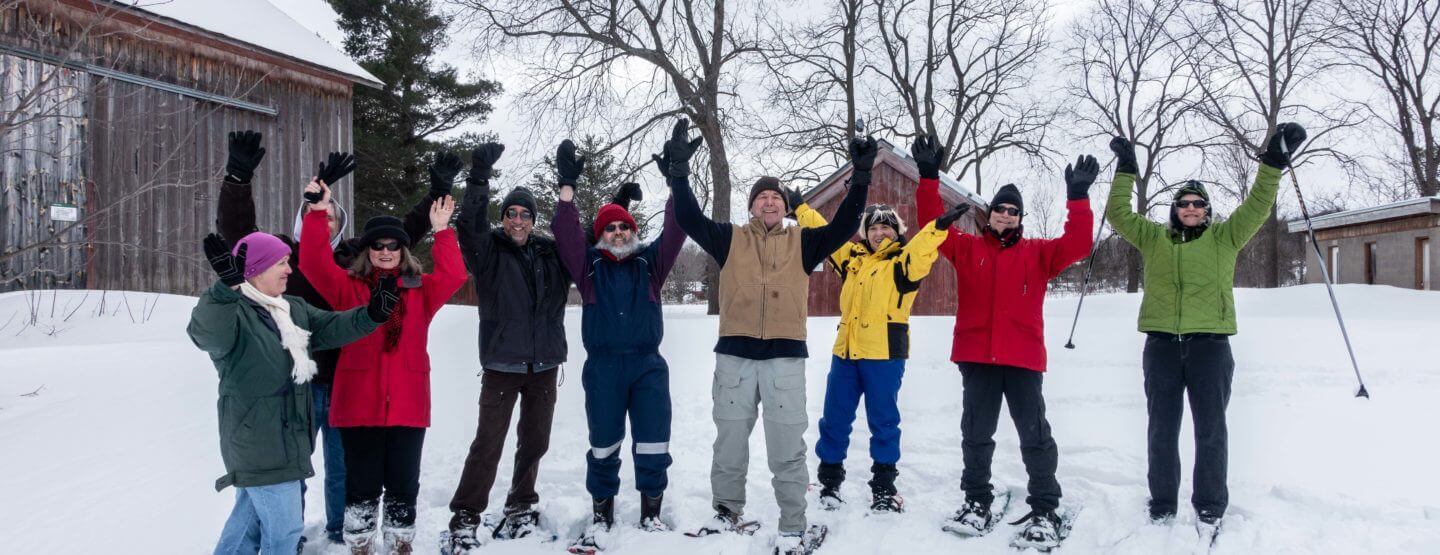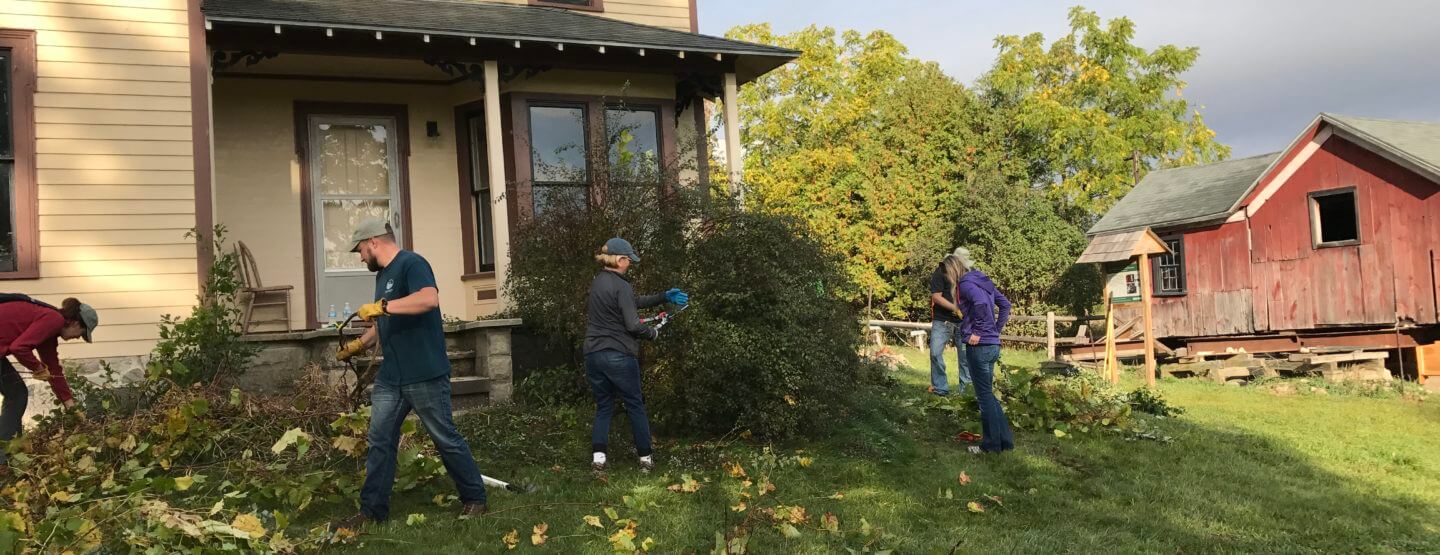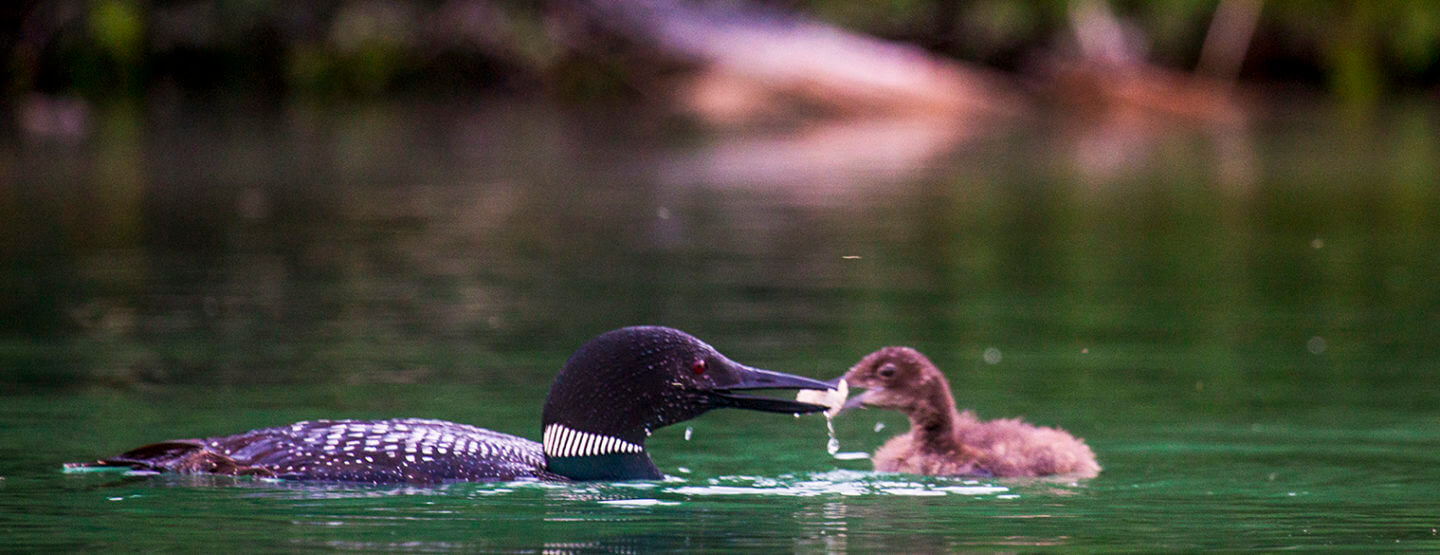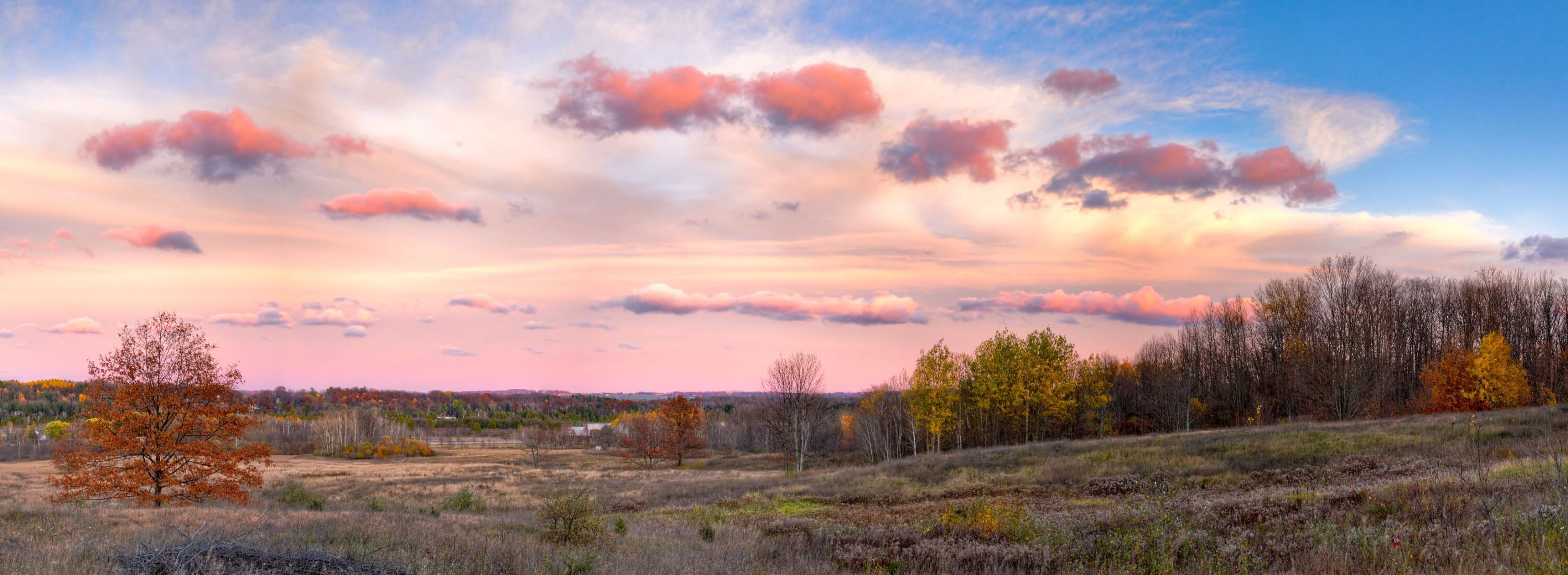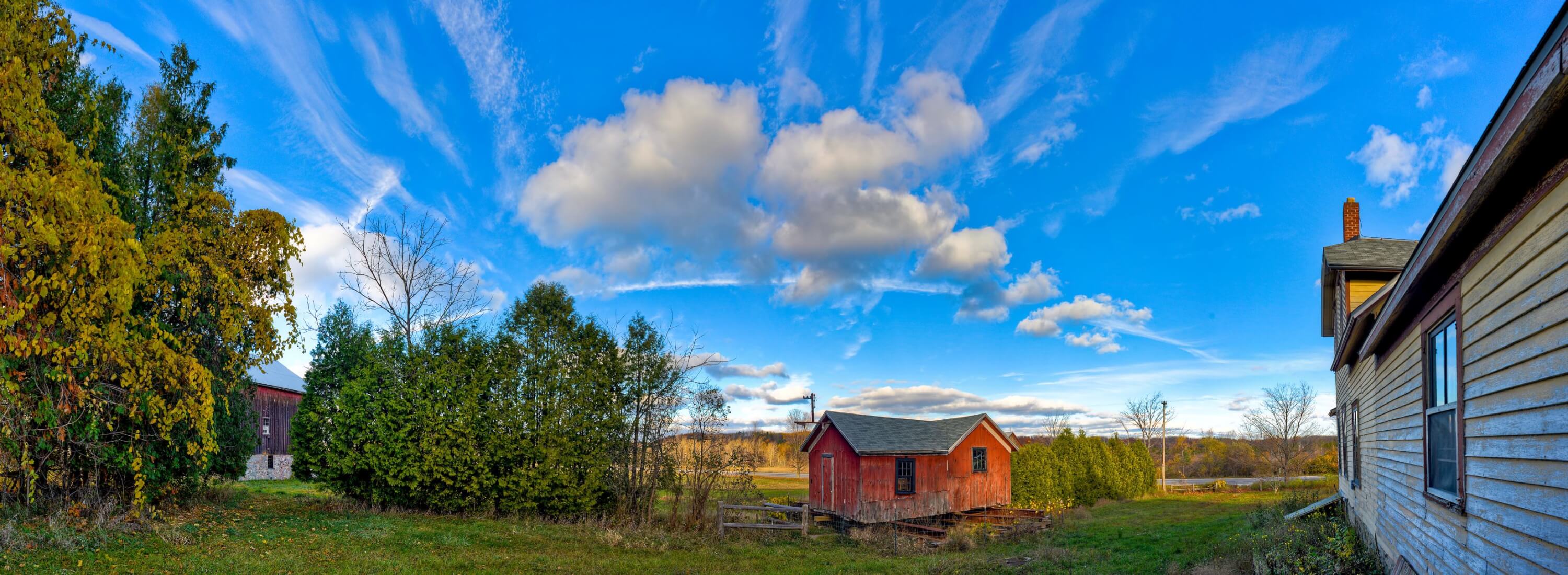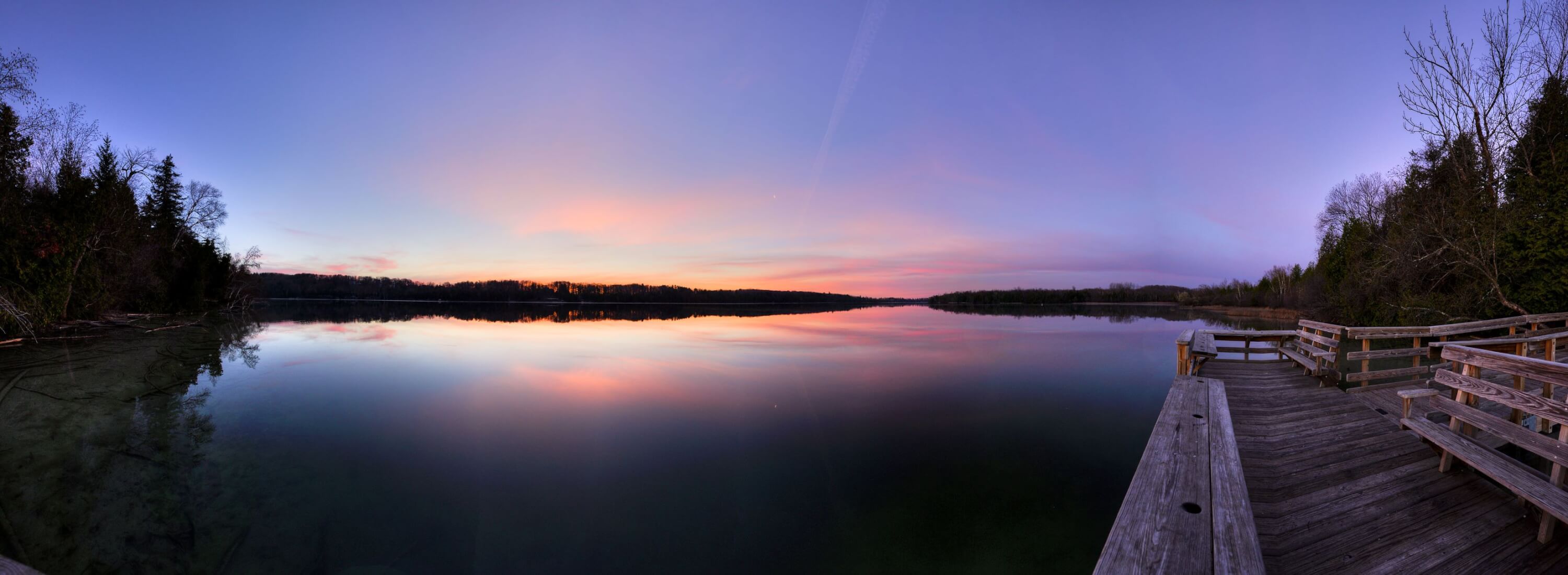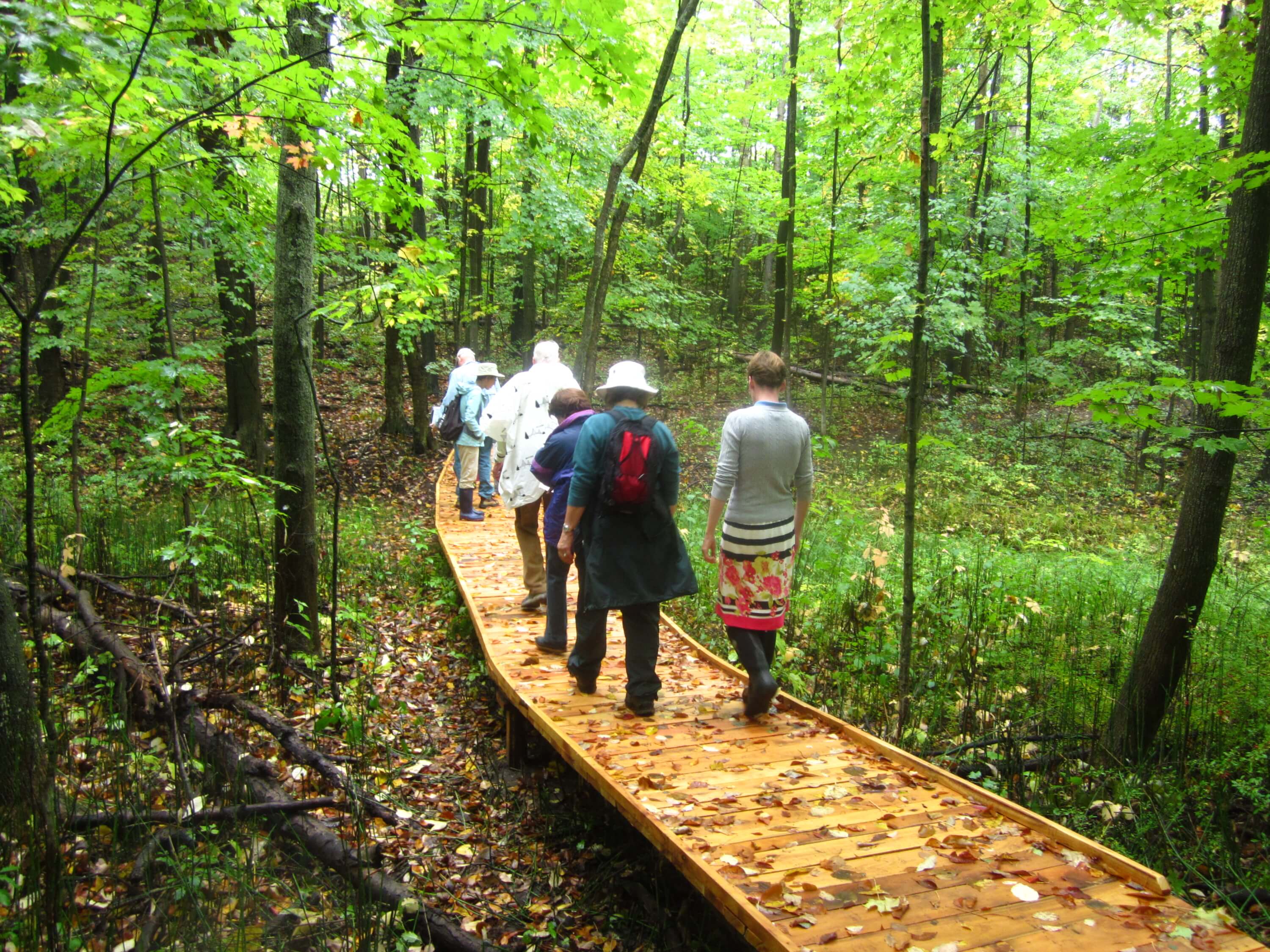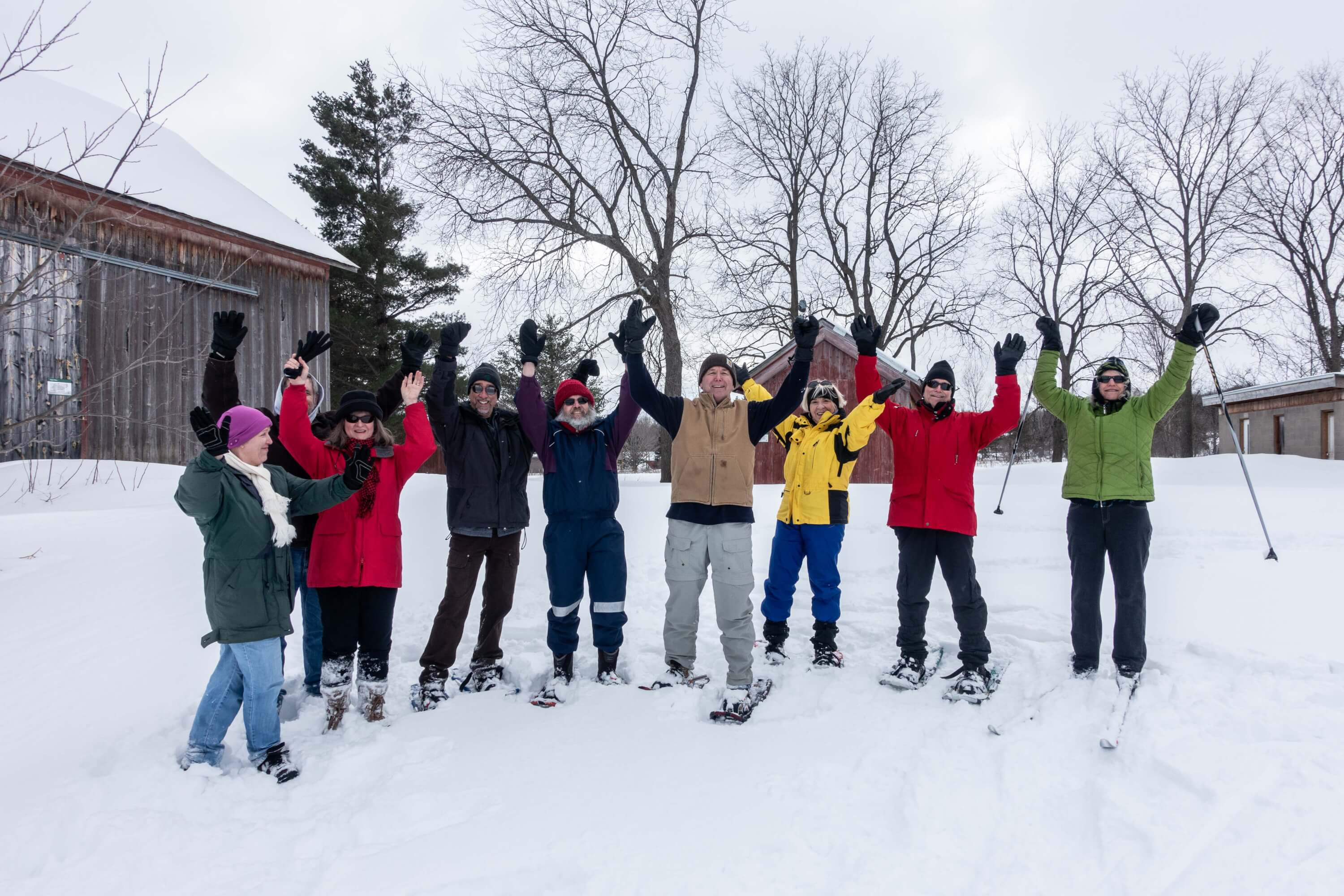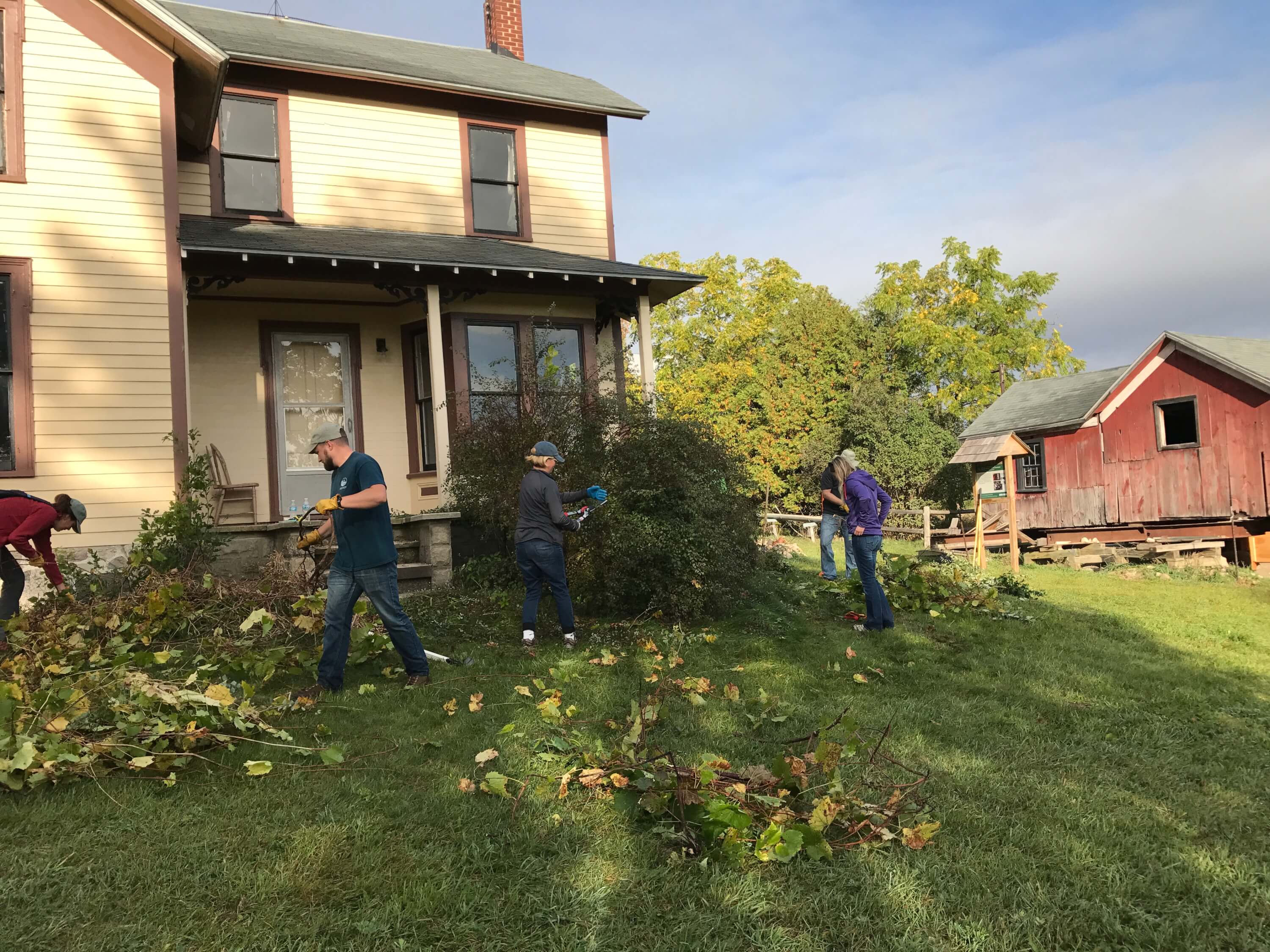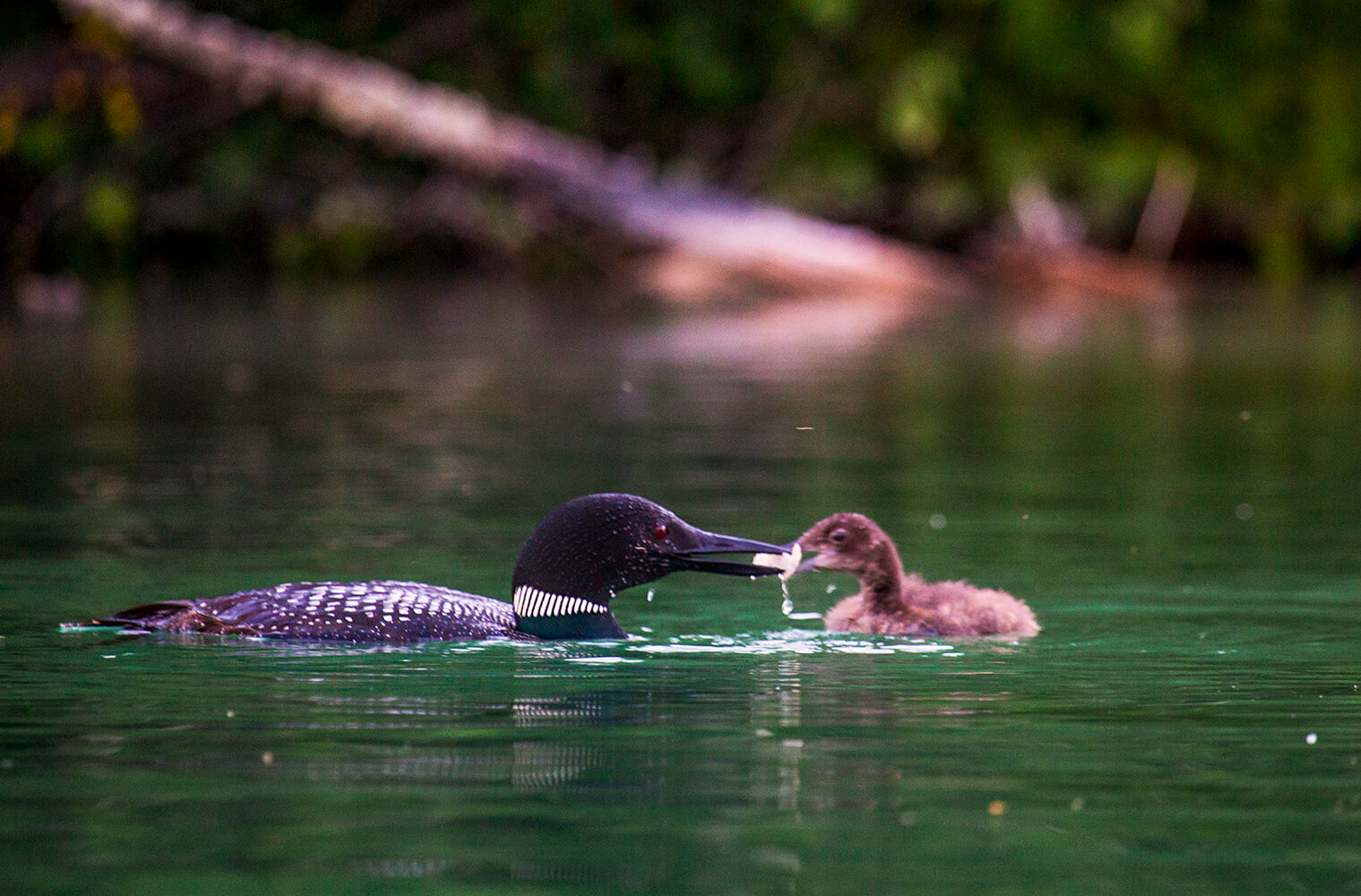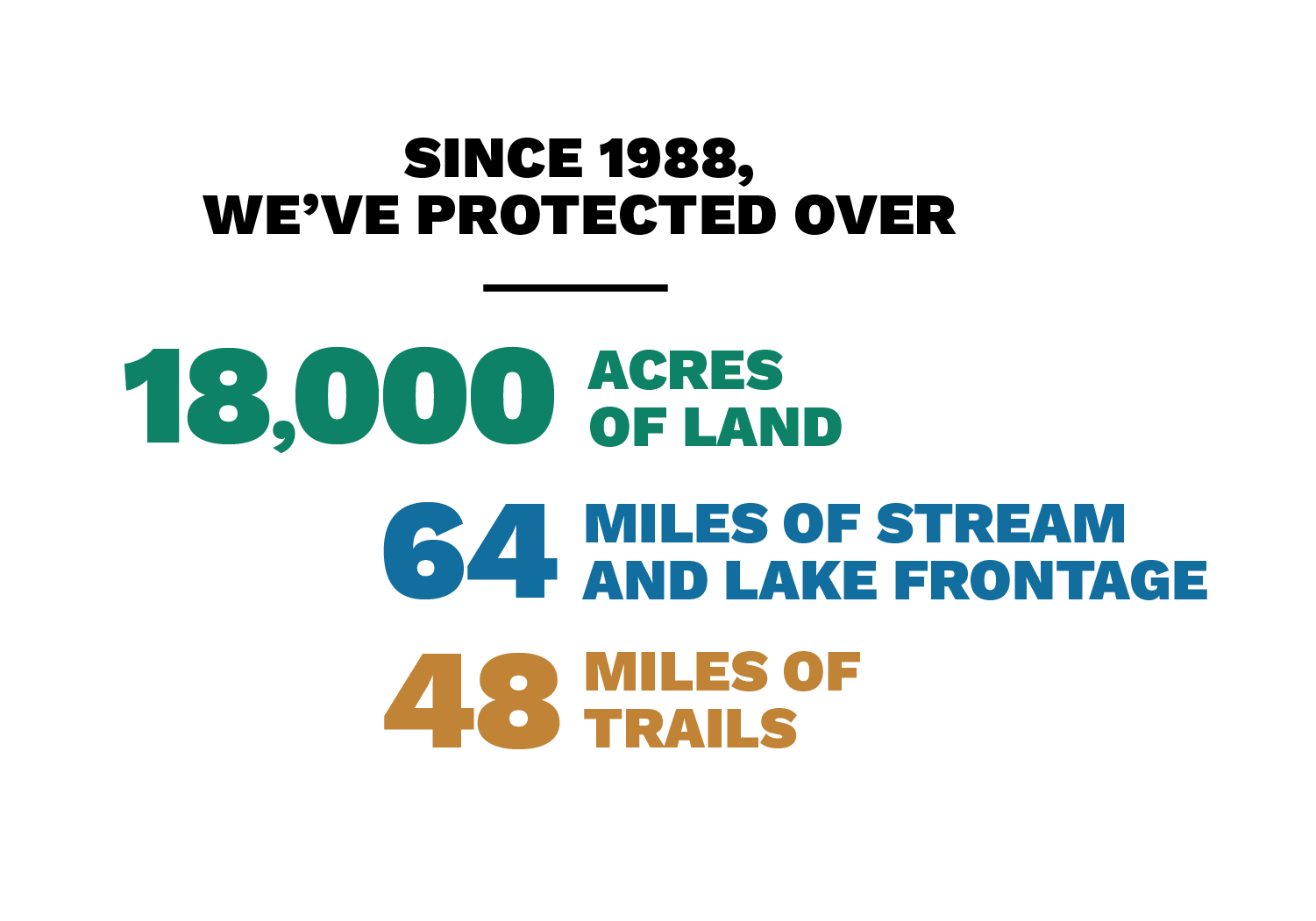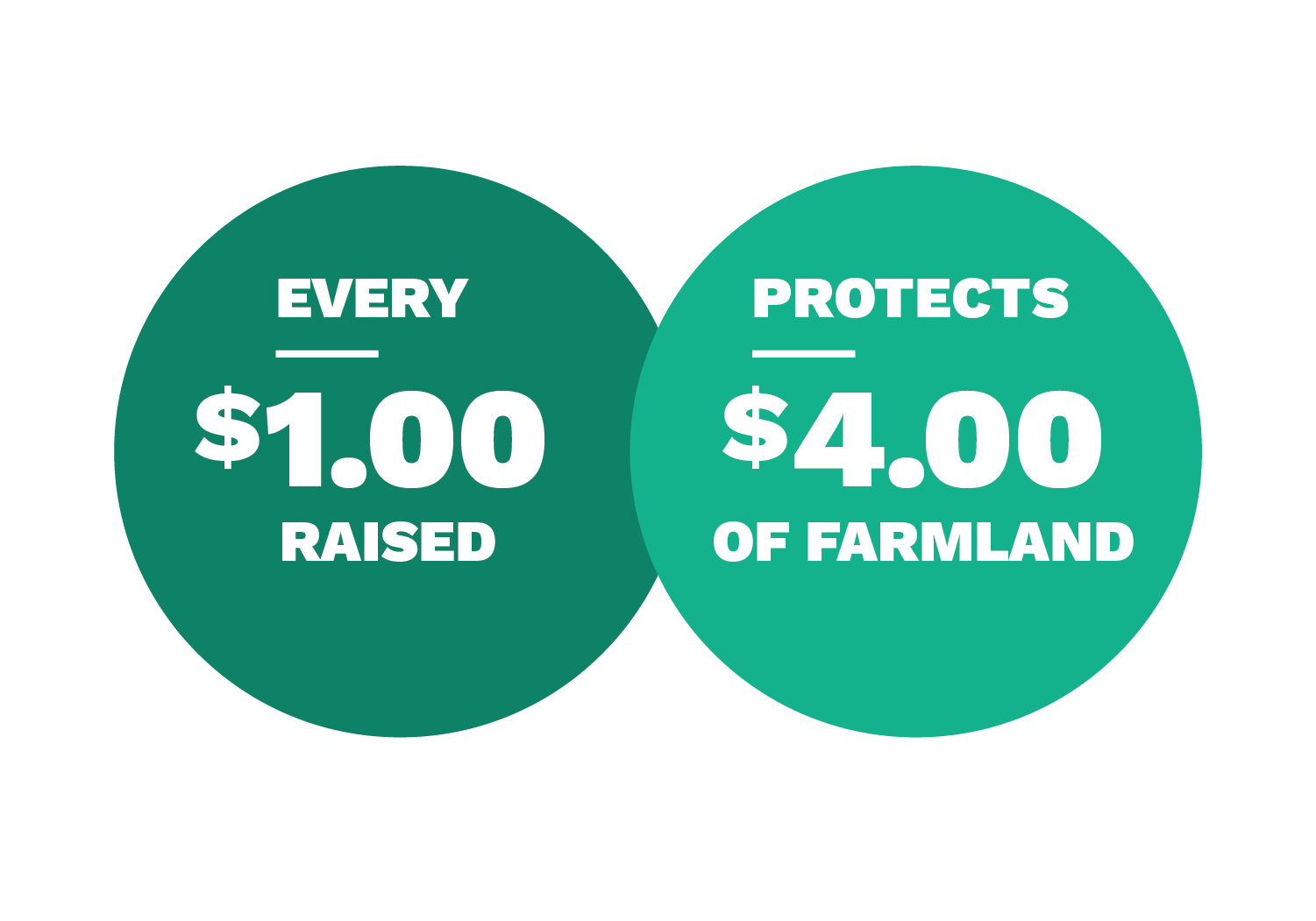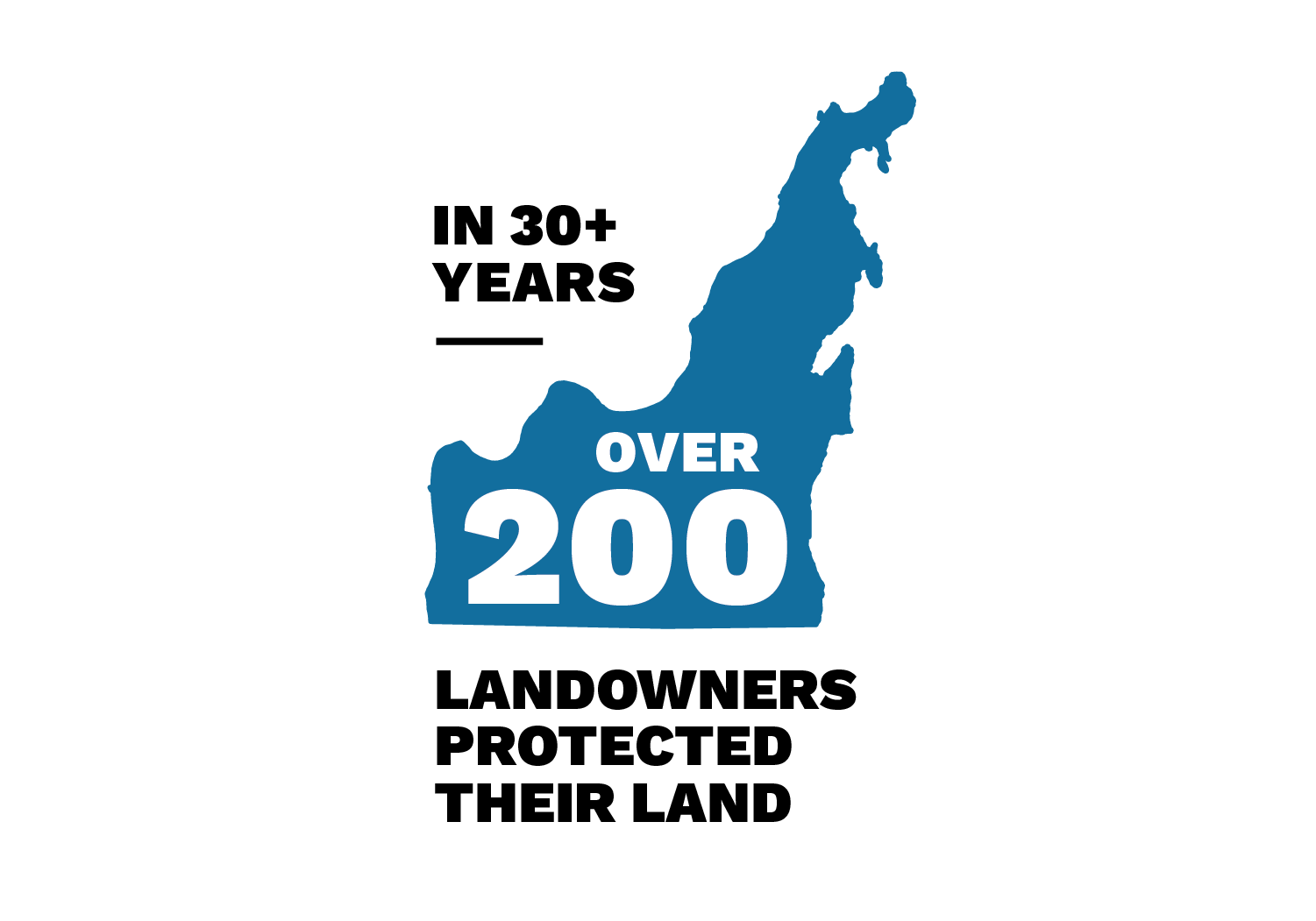The 191-acre DeYoung Natural Area combines an historic farmstead with a mile of shoreline on Cedar Lake and was preserved in partnership with Elmwood Township. The farmstead dates back to 1855 and serves as a gateway to the county’s agricultural corridor. Recreation opportunities abound at this natural area, named for Louis DeYoung, an innovative farmer who died at 104 and dreamed of protecting his land. The TART trail bisects the land and a Universal Access trail leads to a lakeside fishing pier and viewing platform with sweeping views of Cedar Lake.
The project is one of the largest the Conservancy has taken on. “Cedar Lake has the greatest amount of shoreline protected of any inland lake in the County,” said Heiman. Much of the shore contains wetlands critical to the health of Cedar Lake, he adds.
Trail System
A Universal Access trail (.5 mile) leads to Cedar Lake fishing/viewing pier with sweeping views of Cedar Lake. You can reach it via the TART trail or by park in the lot near the large, lower barn off Cherry Bend Road. This beautiful trail meanders through dense ancient cedars and across an open field.
The 1.5 mile upland trail winds around an intact historic farmstead including the original house, two barns and out buildings. It also takes in hardwood forests, open fields and two streams. For the upland trail, park at the parking lot off of Strang Rd. Another new upland trail is in the works, located across the road from the lot off Strang Road. Elmwood Township owns the lakeside portion of the property, which is managed by the Leelanau Conservancy. T
History
The land became available when Louis DeYoung, Sr. passed away at the age of 104. His son, Ted, said it was his father’s dream to see the land forever preserved. Ted, a retired aerospace engineer living in California, began exploring options with the Conservancy late in 2003. (Ted passed away in April, 2018)
Just minutes from Traverse City, the property features frontage on both sides of Cherry Bend Road and sits in the middle of a rapidly developing residential area. “The DeYoung family turned away many offers from developers and sacrificed financially by offering this property to the Conservancy because they care tremendously about seeing it remain as it is today,” said Matt Heiman, Director of Land Programs with the Leelanau Conservancy who worked with the family. “Under some scenarios, the property could have supported as many as 100 homes.” From the property’s highest vantage points there are views of west and east Grand Traverse Bay.
The farm has a rich agricultural history.
The aging mustard colored farmhouse along Cherrybend Road is where Louis and his wife, Esther, raised two children and, early on, tended a dairy cattle herd. After morning milking, Louis herded the cows to pasture, sometimes leading them over railroad tracks to graze on the shores of Cedar Lake. Louis drove his milk into Maxbauer’s Creamery on Traverse City’s West Front in a one-seat Ford pickup. The DeYoungs weathered the Depression, nearly losing their farm. Louis was the first in the area to bring electricity into their home. He rigged up a car generator and a couple of 6-volt light bulbs and hooked it all up to a water wheel on a stream that ran beneath his workshop.
After the Depression, the DeYoungs were also the first of their neighbors to give up farming with horses for tractors. Soon after they gambled on cherries, planting 8 acres, and enjoyed an extended period of profitability—one that put both his children through college.
Features
Universal Access trail (.5 mile) leads to Cedar Lake fishing pier/observation platform and meanders through beautiful cedar forest
Historic farmstead with educational panels throughout this area; docent-led hikes feature learning opportunities about the history of this farm
Two streams that include brook trout, wetlands, and excellent nesting habitat for both resident and migratory birds including warblers, orioles, meadow larks, red-winged black birds and green heron. Forested stream valley lush with horsetail, cedar swamp.
Plants
The DeYoung FQA and Summary is available here. The FQA, or Floristic Quality Assessment, tells the story of the types and quality of flora at DeYoung Natural Area. DeYoung Natural Area Grows by 48 Acres–Dec. 2015
